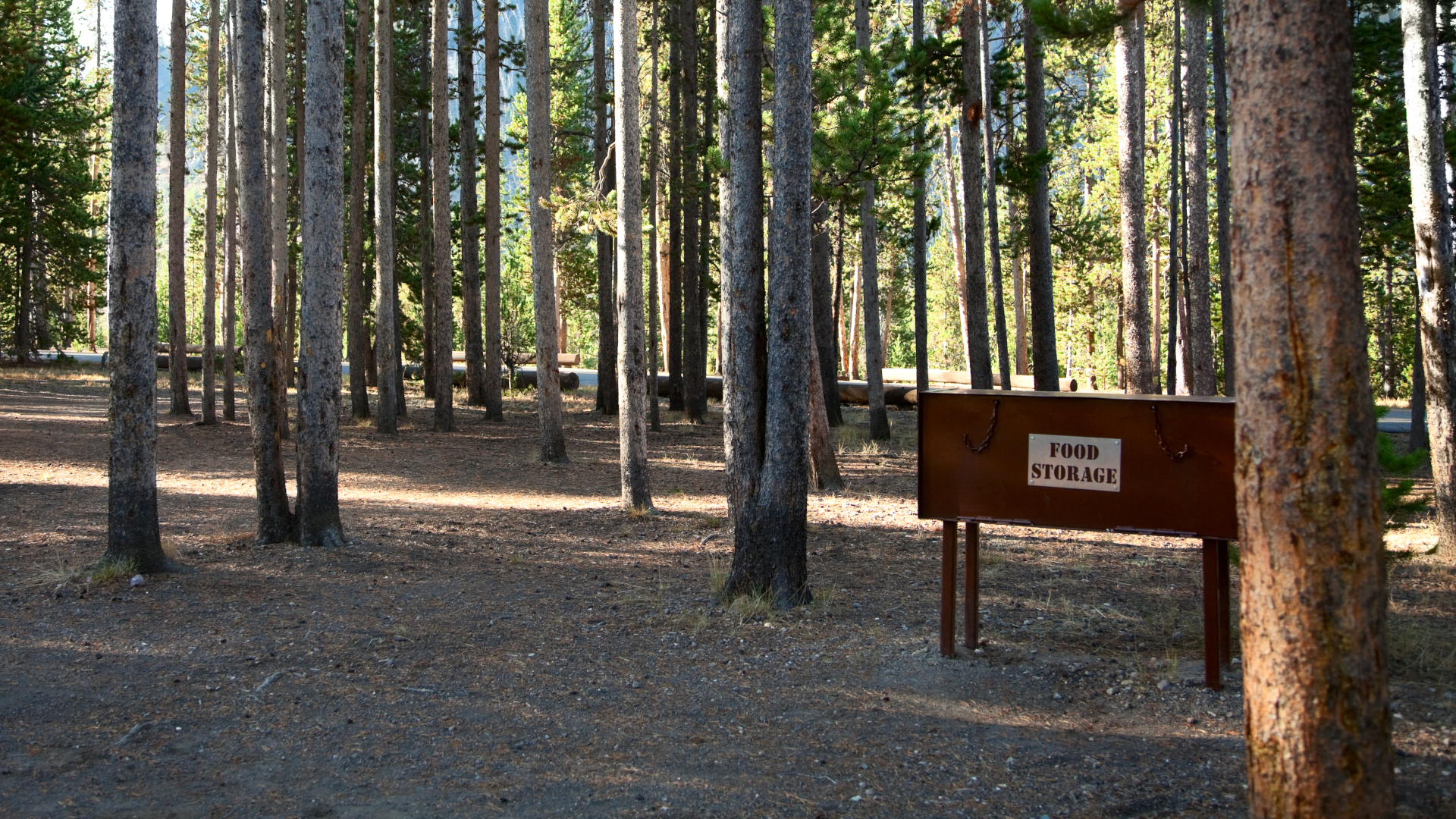National Park visitors are trashing bear boxes – and Rangers say it has to stop
Rangers at Grand Teton shared a photo of a box filled with garbage, leaving other visitors with no safe food storage

Bear boxes are secure food storage lockers provided at many US National Parks, designed to keep curious and hungry animals out of your supplies. They're extremely important, letting you stash your food at a safe distance from your campsite, and preventing the bears developing a taste for it and seeking it out in future.
However, not everyone uses them properly, and Rangers at Grand Teton have had enough of people filling them with trash, making them unusable for other campers. A photo shot by officials and shared this week via Instagram account TouronsOfNationalParks shows a box overflowing with plastic bags, bottles, and food packaging.
"If you're visiting Grand Teton, please follow leave no trace principles and dispose of waste properly in designated trash or recycling receptacles," exasperated Rangers wrote in a caption. "A bear box is not a trash can."
A post shared by @touronsofnationalparks
A photo posted by on
Grand Teton is home to both black bears and grizzlies, and although attacks are rare, it's important for visitors to follow proper procedure to keep themselves and the animals safe.
Bears have extremely sensitive noses, and will investigate anything with an interesting odor, including food, toiletries and garbage, so these should all be secured out of their reach when camping. Even toothpaste, bug spray and sunscreen can be intriguing, and should be treated the same way as your snacks.
"When not in immediate use, all ordorous items must be kept in a bear-resistant food storage locker or in a hard-sided vehicle with doors locked and windows closed, day and night," says the National Park Service.
Grand Teton has specially designed trash cans that are impossible for bears to access, and filling bear boxes with garbage instead leaves other visitors with nowhere safe to store their belongings. If a bear has access to human food as a result, it can lose its natural wariness of humans and become more aggressive, increasing the chances of a dangerous close call in future. Animals that have become habituated may even be euthanized for p8blic safety.
Advnture Newsletter
All the latest inspiration, tips and guides to help you plan your next Advnture!
For more advice, take a look at our guides what to do if you meet a bear, and wildlife safety: eight tips for surprise encounters.

Cat is Homes Editor at TechRadar and former editor of Advnture. She's been a journalist for 15 years, and cut her teeth on magazines before moving online. She helps readers choose the right tech for their home, get the best deals, and do more with their new devices.
